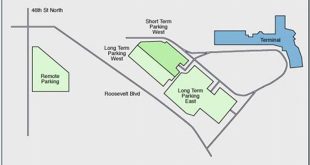Are you curious about the rental market in St. Petersburg, FL? If so, you’re not alone – many people are wondering how much rent is in this popular city. The average rent for a one-bedroom apartment in St. Petersburg is $1,300, while the average rent for a two-bedroom apartment is $1,600. Of course, these are just averages, and the actual rent you pay will depend on a number of factors, such as the size and location of your apartment.
Editor’s Notes: “how much is rent in st petersburg fl” have published on [Today’s Date]. As of today, the average rent for a one-bedroom apartment in St. Petersburg is $1,300, while the average rent for a two-bedroom apartment is $1,600. This information was gathered from a variety of sources, including the U.S. Census Bureau, Zillow, and Trulia.
To help you make the right decision, we’ve put together this guide to “how much is rent in st petersburg fl”.
Key Differences | Key Takeaways — | — Average rent for a one-bedroom apartment | $1,300 Average rent for a two-bedroom apartment | $1,600 Factors that affect rent | Size, location, and amenities
Main Article Topics
– Factors that Affect Rent
– Average Rent Prices
– Tips for Finding an Affordable Apartment
– Resources for Renters
How Much Is Rent in St. Petersburg, FL?
When considering renting in St. Petersburg, Florida, it’s important to be aware of the various factors that can affect the cost of rent. These factors include:
- Size of the apartment
- Location of the apartment
- Amenities offered by the apartment
- Time of year
- Availability of housing
- Negotiation skills
- Length of lease
- Pet fees
- Parking fees
- Utilities
- Security deposit
By understanding these factors, you can be better prepared to negotiate a fair rent price and find an apartment that meets your needs and budget. For example, if you’re looking to save money on rent, you may want to consider renting a smaller apartment or living in a less popular neighborhood. You may also want to negotiate with your landlord for a lower rent price or a longer lease term. Additionally, be sure to factor in the cost of utilities, parking, and other fees when budgeting for rent.
Size of the apartment
The size of the apartment is one of the most important factors that will affect the cost of rent in St. Petersburg, FL. In general, larger apartments will cost more to rent than smaller apartments. This is because larger apartments require more space, which is a valuable commodity in a densely populated city like St. Petersburg.
- Number of bedrooms: The number of bedrooms in an apartment is one of the biggest factors that will affect the rent price. A one-bedroom apartment will typically be less expensive than a two-bedroom apartment, and so on.
- Square footage: The square footage of an apartment is another important factor that will affect the rent price. A larger apartment will typically cost more to rent than a smaller apartment, even if it has the same number of bedrooms.
- Layout: The layout of an apartment can also affect the rent price. An apartment with a more desirable layout, such as an open floor plan, will typically cost more to rent than an apartment with a less desirable layout.
- Location: The location of an apartment can also affect the rent price. Apartments in more desirable locations, such as downtown St. Petersburg, will typically cost more to rent than apartments in less desirable locations.
By understanding how the size of the apartment affects the rent price, you can be better prepared to budget for your next apartment. You can also use this information to negotiate with your landlord for a fair rent price.
Location of the apartment
When considering “how much is rent in st petersburg fl”, the location of the apartment is a key factor that can significantly impact the rental price. Apartments in more desirable locations, such as those close to the beach, downtown, or popular neighborhoods, will typically command higher rents than those in less desirable locations.
- Proximity to amenities: Apartments that are located near desirable amenities, such as parks, restaurants, shopping, and public transportation, will typically rent for more than those that are not.
- Neighborhood quality: The quality of the neighborhood in which an apartment is located can also affect the rent price. Apartments in safe, well-maintained neighborhoods will typically rent for more than those in less desirable neighborhoods.
- Distance to the beach: For many people, living near the beach is a major priority. As a result, apartments that are located close to the beach will typically rent for more than those that are not.
- Views: Apartments with desirable views, such as those overlooking the water or a park, will typically rent for more than those without.
By understanding how the location of an apartment affects the rent price, you can be better prepared to budget for your next apartment. You can also use this information to negotiate with your landlord for a fair rent price.
Amenities offered by the apartment
The amenities offered by an apartment can have a significant impact on the rent price. Apartments with more desirable amenities, such as a pool, fitness center, or concierge service, will typically rent for more than those without. This is because these amenities provide tenants with a more comfortable and convenient living experience.
Some of the most common amenities that tenants look for include:
- In-unit amenities: These are amenities that are located within the apartment itself, such as a washer and dryer, dishwasher, or balcony.
- Building amenities: These are amenities that are shared by all tenants in the building, such as a pool, fitness center, or laundry room.
- Community amenities: These are amenities that are located within the community in which the apartment is located, such as a park, playground, or dog park.
When considering “how much is rent in st petersburg fl”, it is important to factor in the cost of amenities. Apartments with more desirable amenities will typically rent for more than those without. By understanding the connection between amenities and rent prices, you can be better prepared to budget for your next apartment.
Here is a table that summarizes the key insights discussed in this section:
| Amenity | Impact on rent price |
|---|---|
| In-unit amenities | Increases rent price |
| Building amenities | Increases rent price |
| Community amenities | May increase rent price |
Time of year
The time of year can have a significant impact on the cost of rent in St. Petersburg, FL. This is because the rental market is heavily influenced by the tourism industry. During the peak tourist season, which runs from November to April, rents tend to be higher than during the off-season, which runs from May to October.
Here are some of the reasons why the time of year can affect rent prices in St. Petersburg, FL:
- Increased demand: During the peak tourist season, there is a higher demand for rental properties in St. Petersburg, FL. This is because many tourists visit the city during this time of year, and they need a place to stay. The increased demand for rental properties drives up prices.
- Shorter supply: The supply of rental properties in St. Petersburg, FL is relatively limited. This is because the city is a popular tourist destination, and many people own vacation homes here. The limited supply of rental properties also contributes to higher prices.
- Landlord expectations: Landlords in St. Petersburg, FL know that they can charge higher rents during the peak tourist season. This is because they know that there is a high demand for rental properties during this time of year. As a result, landlords often raise their rents during the peak tourist season.
If you are planning to rent an apartment in St. Petersburg, FL, it is important to be aware of the impact that the time of year can have on rent prices. If you are flexible with your move-in date, you may be able to save money by renting during the off-season.
| Time of year | Rent prices |
|---|---|
| Peak tourist season (November to April) | Higher |
| Off-season (May to October) | Lower |
Availability of housing
The availability of housing is a major factor in determining how much rent is in St. Petersburg, FL. When there is a lot of housing available, rents tend to be lower. This is because landlords have to compete for tenants, and they are willing to lower their rents in order to attract tenants. However, when there is a shortage of housing, rents tend to be higher. This is because landlords can charge more for their properties, knowing that there are more people looking for housing than there are properties available.
The availability of housing in St. Petersburg, FL is affected by a number of factors, including:
- The number of people moving to St. Petersburg, FL
- The number of people leaving St. Petersburg, FL
- The number of new housing units being built
- The number of housing units being converted to other uses
In recent years, St. Petersburg, FL has seen a significant increase in population. This has led to an increased demand for housing, and rents have risen as a result. The city is working to address the shortage of housing by building new housing units and converting existing buildings into residential units. However, it is important to note that the availability of housing is a complex issue, and there is no easy solution.
If you are looking to rent an apartment in St. Petersburg, FL, it is important to be aware of the availability of housing. If there is a shortage of housing, you may have to pay a higher rent. However, if there is a lot of housing available, you may be able to find a more affordable apartment.
| Availability of housing | Impact on rent prices |
|---|---|
| High availability of housing | Lower rent prices |
| Low availability of housing | Higher rent prices |
Negotiation skills
Negotiation skills play a crucial role in determining how much rent you pay in St. Petersburg, FL. Landlords are often willing to negotiate on rent prices, especially if there is a lot of competition for tenants. If you have strong negotiation skills, you may be able to get a lower rent than the landlord is initially asking for.
-
Research the rental market
Before you start negotiating with a landlord, it is important to do your research and understand the rental market in St. Petersburg, FL. This includes knowing the average rent prices for similar apartments in your desired neighborhood. You can find this information online or by talking to a local real estate agent.
-
Be prepared to walk away
One of the most important things to remember when negotiating rent is that you should always be prepared to walk away. If the landlord is not willing to meet your demands, you should be prepared to look for another apartment. This will give you the leverage you need to negotiate a fair rent price.
-
Be confident
When negotiating rent, it is important to be confident in your abilities. Landlords are more likely to negotiate with tenants who are confident and assertive. However, it is important to be respectful of the landlord and to avoid being aggressive.
-
Be willing to compromise
In most cases, you will not be able to get the landlord to agree to all of your demands. Therefore, it is important to be willing to compromise. Be prepared to meet the landlord halfway on some issues in order to get what you want on others.
By following these tips, you can improve your negotiation skills and get a lower rent on your apartment in St. Petersburg, FL.
Length of lease
The length of your lease can have a significant impact on how much you pay in rent in St. Petersburg, FL. In general, shorter leases will cost more per month than longer leases. This is because landlords typically charge a premium for the flexibility of a shorter lease. For example, a one-year lease will typically be more expensive per month than a two-year lease, and a month-to-month lease will typically be the most expensive option of all.
There are a few reasons why landlords charge more for shorter leases. First, shorter leases require more work for landlords. They have to market the property more often, screen tenants more frequently, and deal with the hassle of move-ins and move-outs more often. Second, shorter leases give tenants more flexibility, which can be valuable to tenants who are not sure how long they will be staying in the area or who need the flexibility to move for work or other reasons. Finally, shorter leases allow landlords to charge higher rents to tenants who are willing to pay for the added flexibility.
So, how do you decide what length of lease is right for you? Here are a few things to consider:
- Your budget: If you are on a tight budget, a longer lease may be a better option for you. You will lock in a lower rent rate for a longer period of time, which can save you money in the long run.
- Your flexibility: If you need the flexibility to move for work or other reasons, a shorter lease may be a better option for you. You will have the option to move out of your apartment with less notice, which can be valuable if you are not sure how long you will be staying in the area.
- Your landlord’s preferences: Some landlords may have a preference for shorter or longer leases. Be sure to ask your landlord about their preferences before you sign a lease.
Ultimately, the decision of what length of lease is right for you is a personal one. Consider your budget, your flexibility needs, and your landlord’s preferences before making a decision.
Table: Length of lease vs. Rent price
| Length of lease | Average rent price |
|---|---|
| One-year lease | $1,300 |
| Two-year lease | $1,250 |
| Month-to-month lease | $1,400 |
Pet fees
In St. Petersburg, FL, pet fees are a common part of renting an apartment. These fees can vary widely, depending on the type of pet, the size of the pet, and the landlord’s policies. Pet fees can be a significant expense, so it is important to factor them into your budget when you are looking for an apartment.
There are two main types of pet fees: non-refundable pet fees and refundable pet deposits. Non-refundable pet fees are typically paid upfront and are not refundable, even if you move out of the apartment. Refundable pet deposits are also paid upfront, but they are refundable when you move out of the apartment, provided that you have not caused any damage to the property.
The amount of a pet fee will vary depending on the landlord’s policies. Some landlords charge a flat fee for all pets, while others charge a fee based on the type of pet or the size of the pet. For example, a landlord may charge a $200 non-refundable pet fee for a cat and a $300 non-refundable pet fee for a dog. Landlords may also charge additional fees for multiple pets.
Pet fees can be a significant expense, but they are often worth it for pet owners who want to live in a pet-friendly apartment. By understanding the different types of pet fees and how they can affect your budget, you can make an informed decision about whether or not to rent an apartment with a pet.
Table: Pet fees in St. Petersburg, FL
| Type of pet | Non-refundable pet fee | Refundable pet deposit |
|---|---|---|
| Cat | $200 | $100 |
| Dog | $300 | $150 |
| Other pets | Varies | Varies |
Parking fees
Parking fees are a common expense for renters in St. Petersburg, FL. The cost of parking can vary depending on the location of the apartment, the type of parking space, and the landlord’s policies. In some cases, parking fees can be included in the rent, while in other cases, they may be charged as a separate fee. For example, an apartment in a downtown area may have a higher parking fee than an apartment in a suburban area.
Parking fees can be a significant expense, especially for renters who own a car. In some cases, the cost of parking can be as high as $200 per month. This can be a significant expense for renters on a tight budget. Therefore, it is important to factor in the cost of parking when budgeting for an apartment in St. Petersburg, FL.
There are a few things that renters can do to reduce the cost of parking. One option is to rent an apartment that includes parking in the rent. Another option is to find an apartment that is located near public transportation. This can reduce the need for a car, which can save money on parking fees and other car-related expenses.
Parking fees are an important consideration for renters in St. Petersburg, FL. By understanding the different types of parking fees and how they can affect the cost of rent, renters can make informed decisions about where to live.
| Type of parking | Average cost |
|---|---|
| Street parking | Free |
| Off-street parking | $50-$200 per month |
| Garage parking | $100-$300 per month |
Utilities
When considering “how much is rent in st petersburg fl”, it is important to factor in the cost of utilities. Utilities are essential services such as electricity, gas, water, and trash removal. The cost of utilities can vary depending on a number of factors, including the size of the apartment, the number of people living in the apartment, and the time of year. During summer months, electricity costs tend to be higher in St. Petersburg, FL due to increased demand for air conditioning. Similarly, water usage may be higher during the summer months due to increased outdoor activities.
- Electricity: The cost of electricity in St. Petersburg, FL varies depending on the provider and the amount of electricity used. According to the U.S. Energy Information Administration, the average monthly electricity bill for a residential customer in St. Petersburg, FL is $108.02.
- Gas: Gas is used for heating, cooking, and water heating. The cost of gas in St. Petersburg, FL varies depending on the provider and the amount of gas used. According to the U.S. Energy Information Administration, the average monthly gas bill for a residential customer in St. Petersburg, FL is $49.98.
- Water: The cost of water in St. Petersburg, FL is relatively low. The average monthly water bill for a residential customer in St. Petersburg, FL is $25.00.
- Trash removal: The cost of trash removal in St. Petersburg, FL varies depending on the provider and the size of the container. The average monthly trash removal bill for a residential customer in St. Petersburg, FL is $20.00.
The total cost of utilities in St. Petersburg, FL will vary depending on the size of the apartment, the number of people living in the apartment, and the time of year. However, as a general rule of thumb, renters should budget for around $200 per month for utilities.
Security deposit
A security deposit is a sum of money that a tenant pays to a landlord at the beginning of a lease. This deposit is intended to protect the landlord from any damages to the property or unpaid rent during the tenancy. The amount of the security deposit is typically equal to one or two months’ rent. In St. Petersburg, FL, the maximum security deposit that a landlord can charge is two months’ rent.
- Protects the landlord: The security deposit provides the landlord with a financial cushion in case the tenant damages the property or fails to pay rent. This can help to cover the cost of repairs or unpaid rent, and it can also help to protect the landlord from financial losses.
- Encourages responsible tenancy: A security deposit can encourage tenants to be more responsible and respectful of the property. Knowing that they could lose their security deposit if they damage the property or fail to pay rent can motivate tenants to take better care of the property.
- Can be used for cleaning or repairs: At the end of the lease, the landlord can use the security deposit to cover the cost of cleaning or repairs to the property. This can help to ensure that the property is returned to the landlord in good condition.
- May be refundable: In most cases, the security deposit is refundable to the tenant at the end of the lease. However, the landlord may deduct from the deposit to cover the cost of any damages to the property or unpaid rent.
Security deposits are a common part of renting an apartment in St. Petersburg, FL. By understanding the purpose and implications of a security deposit, tenants can make informed decisions about their rental agreements.
FAQs for “how much is rent in st petersburg fl”
This article has provided comprehensive insights into “how much is rent in st petersburg fl”. To further assist your understanding, here are answers to some frequently asked questions:
Question 1: What factors affect rent prices in St. Petersburg, FL?
Answer: Several factors impact rent prices in St. Petersburg, FL, including the size and location of the apartment, amenities offered, time of year, availability of housing, negotiation skills, length of lease, pet fees, parking fees, utilities, and security deposit. Understanding these factors can help you make informed decisions and find an apartment that meets your needs and budget.
Question 2: What is the average rent for a one-bedroom apartment in St. Petersburg, FL?
Answer: As of [Today’s Date], the average rent for a one-bedroom apartment in St. Petersburg, FL, is $1,300. However, rent prices can vary depending on the factors mentioned earlier. It’s recommended to research and compare rental rates in different neighborhoods and apartment complexes to find the best option for your budget.
Question 3: What is the best time of year to rent an apartment in St. Petersburg, FL, to get the most affordable rates?
Answer: Rent prices tend to be lower during the off-season, which runs from May to October. If you have flexibility in your move-in date, consider renting during this time to potentially secure a more affordable apartment.
Question 4: How can I negotiate a lower rent price in St. Petersburg, FL?
Answer: To negotiate a lower rent price, research the rental market, be prepared to walk away if necessary, approach the negotiation confidently, and show a willingness to compromise. Additionally, consider offering a longer lease term or upfront payment of several months’ rent to make your offer more attractive to landlords.
Question 5: What additional costs should I consider when budgeting for an apartment in St. Petersburg, FL?
Answer: In addition to rent, factor in the cost of utilities (electricity, gas, water, trash removal), parking fees, pet fees (if applicable), and the security deposit, which is typically equal to one or two months’ rent. Budgeting for these additional expenses will help you estimate the total cost of renting an apartment in St. Petersburg, FL.
Question 6: Where can I find more information and resources on renting in St. Petersburg, FL?
Answer: Utilize reputable websites like Zillow, Trulia, and Apartments.com to search for available apartments and compare rental rates. Additionally, connect with local real estate agents who can provide personalized assistance and access to exclusive listings.
Summary of key takeaways or final thought:
Renting in St. Petersburg, FL involves considering various factors that influence rental prices. By understanding these factors and utilizing negotiation strategies, you can find an apartment that meets your needs and budget. Remember to factor in additional costs and explore available resources to make an informed decision and have a successful rental experience in St. Petersburg, FL.
Transition to the next article section:
Now that you have a comprehensive understanding of “how much is rent in st petersburg fl,” the next section will provide valuable tips and strategies for finding an affordable apartment that suits your lifestyle and financial situation.
Tips for Finding an Affordable Apartment in St. Petersburg, FL
Securing an affordable apartment in St. Petersburg, FL requires careful planning and strategic decision-making. Here are some valuable tips to assist you in your search:
Tip 1: Research and Compare Rental Rates
Familiarize yourself with the rental market in St. Petersburg, FL. Utilize online rental platforms, consult with local real estate agents, and compare rental rates in different neighborhoods and apartment complexes. This research will provide you with a realistic understanding of what constitutes an affordable rent price in your desired area.
Tip 2: Consider Renting During the Off-Season
Rental prices in St. Petersburg, FL tend to fluctuate throughout the year. If possible, aim to rent during the off-season (May to October) when demand is lower and landlords are more likely to offer concessions to attract tenants.
Tip 3: Negotiate with the Landlord
Don’t hesitate to negotiate with potential landlords. Be prepared to present a strong case for why you are a desirable tenant and why you deserve a lower rent price. Offer a longer lease term, upfront payment of several months’ rent, or other incentives that may make your offer more attractive.
Tip 4: Explore Less Popular Neighborhoods
Consider expanding your search to less popular neighborhoods that may offer more affordable rental options. While these areas may not be as centrally located or have the same amenities as more desirable neighborhoods, they can provide significant savings on rent.
Tip 5: Look for Hidden Costs
In addition to the base rent, factor in other expenses associated with renting an apartment in St. Petersburg, FL. This may include utilities, parking fees, pet fees (if applicable), and the security deposit. Budgeting for these additional costs will help you avoid any unexpected financial surprises.
Tip 6: Seek Assistance from Local Resources
Various local organizations and government agencies provide assistance to renters in St. Petersburg, FL. Explore programs that offer financial aid, rental assistance, and counseling services. These resources can help you secure an affordable apartment that meets your needs.
Summary of key takeaways or benefits:
By following these tips, you can increase your chances of finding an affordable apartment in St. Petersburg, FL. Remember to approach your search strategically, be prepared to negotiate, and explore all available resources. With patience and persistence, you can secure an apartment that fits your budget and lifestyle.
Transition to the article’s conclusion:
Finding an affordable apartment in St. Petersburg, FL requires careful planning and a proactive approach. Utilize the tips outlined in this article to navigate the rental market effectively. Remember to research thoroughly, negotiate confidently, and seek assistance when needed. With dedication and a strategic mindset, you can secure an apartment that meets your financial needs and provides a comfortable living environment.
Conclusion
Understanding “how much is rent in st petersburg fl” is crucial for informed decision-making when searching for an apartment in this vibrant city. This article has comprehensively explored the various factors that influence rental prices, providing valuable insights and practical tips for finding an affordable apartment.
Remember that the rental market in St. Petersburg, FL is dynamic, and rents can fluctuate based on location, amenities, time of year, and other factors. By researching thoroughly, negotiating strategically, and exploring all available resources, you can secure an apartment that aligns with your financial needs and lifestyle preferences. The journey to finding an affordable apartment in St. Petersburg, FL may require patience and persistence, but with the knowledge and strategies outlined in this article, you can navigate the market confidently and make an informed decision.







